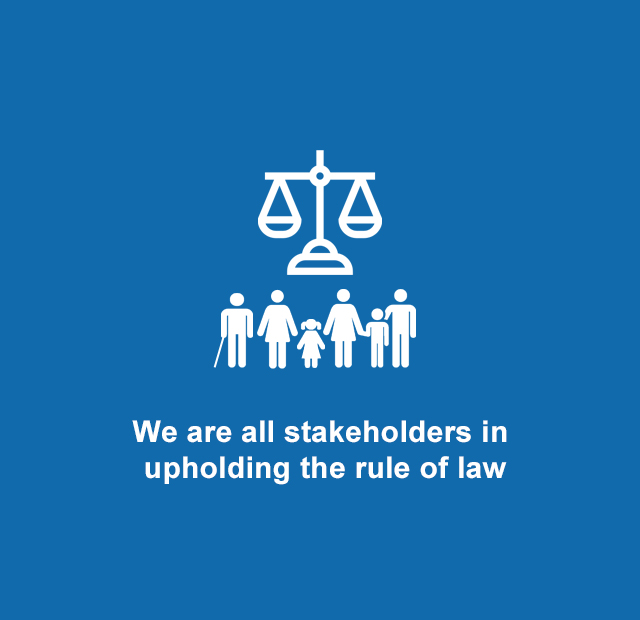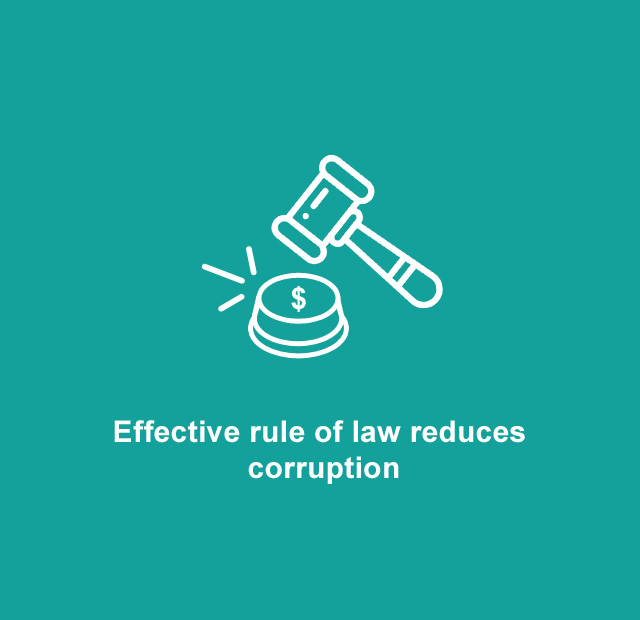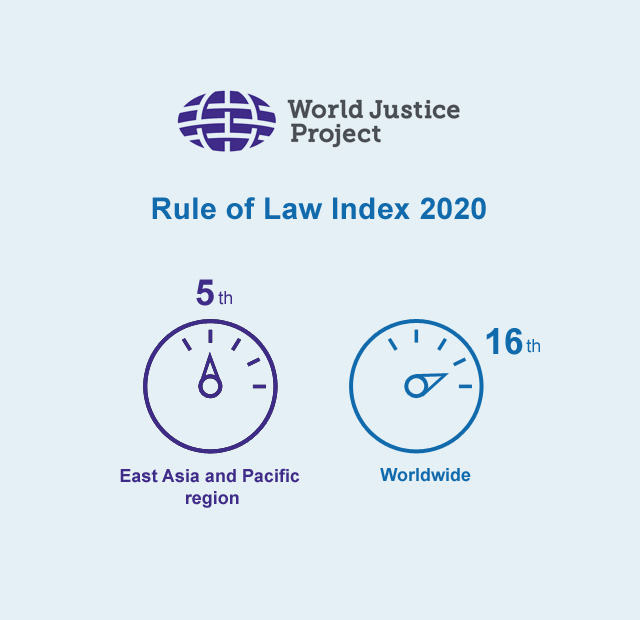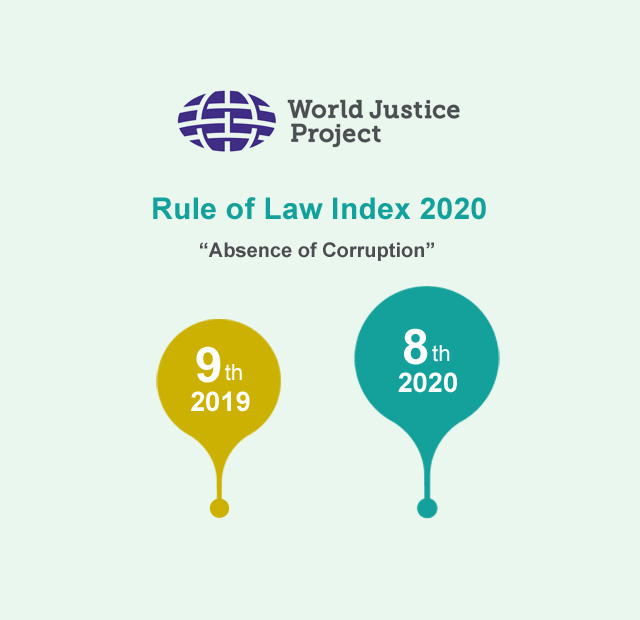The rule of law and a society which embraces the core value of integrity have always been the cornerstone of a corruption-free Hong Kong. It is one of the pillars that enables Hong Kong to become an international financial center and a world-class city over the years. In the Rule of Law Index 2020 released by The World Justice Project (WJP), Hong Kong was ranked the fifth in the East Asia and Pacific region, and the 16th globally among the 128 countries and jurisdictions surveyed. Under the criterion “Absence of Corruption”, the city’s performance climbed one place to the eighth.
Announcing the Index earlier this year, WJP founder and CEO Mr William H. Neukom remarked that the rule of law was not just a matter for judges or lawyers. “We are all stakeholders in the rule of law and therefore we all have a role to play in upholding it,” he added. To this end, Hong Kong society has a great advantage over many other places.
As stated in the Index, “effective rule of law reduces corruption”. The ICAC, being a dedicated anti-corruption agency in Hong Kong, intrinsically plays an important role as a key stakeholder in upholding the rule of law. And so does everyone in our society.




In the past few months, the rule of law has been further strengthened since the National Security Law came into effect in June 2020. While the social unrest last year had dealt a great blow to social stability and impeded its economic development, with the enactment of the National Security Law, Hong Kong has been on the right track returning to stability and prosperity. Acts of violence and blatant defiance of law and order have largely subsided. While some people remain skeptical about the legislation, it was undeniably a turning point for Hong Kong to restore order from chaos.
No country/territory in the world does not have some kind of national security laws/measures to safeguard national security. Hong Kong should not be an exception. The serious violent incidents took place since June 2019 exposed the national security loophole in Hong Kong laws. The enactment of the National Security Law in Hong Kong filled the legislative gap and has been remarkably forceful in restoring stability in Hong Kong while at the same time expressly reassures that the legitimate rights of Hong Kong people, such as their freedom of speech, press, assembly, demonstration and procession etc. will not be compromised. The fear instilled in the majority of the Hong Kong population by rioters in the almost year-long social unrest and violence was eliminated and their freedom restored through the implementation of the National Security Law. At the same time, the “One Country Two Systems” principle applicable to Hong Kong remains fully intact.
At this crucial juncture as the city strives to uphold the rule of law, community engagement and education programmes, in particular those targeting the youth, are imperative. It is noted that the majority of offenders arrested, prosecuted and convicted in last year’s social unrest were young people. Coincidentally, the ICAC Annual Survey in 2019 also showed that young respondents had a higher tolerance towards corruption. On a scale of 0 to 10 with 0 representing total rejection and 10 total tolerance of corruption, young respondents registered a mean score of 0.5 as compared with the overall 0.3. The need to further instill an awareness of the core value of integrity and law-abidingness among young people is imminent.
Youth education has always been one of the ICAC’s work priorities. Since its inception, the Commission has strived to promote integrity and positive values to students from kindergartens to universities as well as working youths. In the coming year, the Commission will step up its efforts to entrench the positive values of integrity and the principle of law abiding in the young generation through a holistic educational approach.